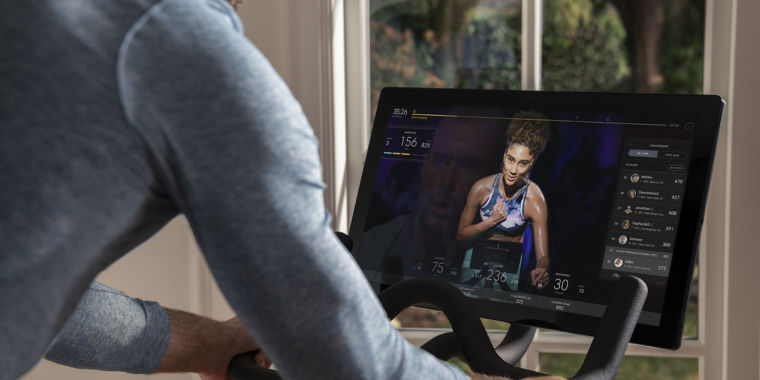
Peloton will begin charging a one-time $95 “used equipment activation fee” for used bikes purchased outside of Peloton and its official distribution partners.
The fee applies in the US and Canada. As reported by The Verge, Peloton confirmed in its Q4 2024 earnings call today that people who buy a used bike directly from Peloton or one of its third-party partners will not be subject to the fee.
During the call, Peloton Interim CEO Christopher Bruzzo said the activation fee will be “a source of additional revenue and gross profit” and will support Peloton’s “investments in improving the fitness experience for our members.”
Peloton also claimed in a letter to shareholders [PDF] that the compensation is intended to ensure that the subscription customers Peloton brings in through used bike sales “receive the same high-quality onboarding experience.”
Second-hand bikes already help Peloton make money
Peloton doesn’t make money directly when someone sells their unwanted bike to someone else for a discount, but it does make significant money from people who buy subscriptions to use with their used gear. In its Q4 2024 shareholder letter, Peloton said that used bike sales “drive a steady stream of paid connected fitness subscribers, up 16 percent” year-over-year in Peloton’s fiscal Q4.
People who buy used bikes outside of Peloton also show “lower net churn rates” than people who pay Peloton to rent their hardware, the letter said.
But Peloton’s hardware sales have fallen, as has its value, since its boom during the COVID-19 pandemic. The new activation fees are indicative of a company desperate for more revenue after going from a $50 billion valuation in January 2021 to $2.1 billion in December 2023.
Peloton’s Q4 2024 earnings report today showed that hardware sales were down 4 percent year over year (YoY). Subscription revenue was up 2.3 percent (YoY). Overall, Peloton achieved its first revenue growth (0.2 percent YoY) since the fiscal quarter ended December 21, 2021. The company still reported a loss of $30.5 million; though that’s an improvement from a year ago, when it lost $241.8 million.
Costs can discourage sales of used equipment
Peloton will need to continue to make big strides to turn a profit. However, the $95 fee could be seen as a deterrent to the second-hand market and unnecessary for the user experience.
Peloton gear is already known for its high price (the Bike+, for example, costs $2,500 at the time of writing). The secondhand market makes Peloton products more accessible and allows people to recoup some of the losses from unwanted equipment, while also preventing connected fitness gear from becoming e-waste. A $95 fee takes away some of the savings people have enjoyed for years by opting for a used Peloton.
The costs are also higher than most used car markets (imagine having to pay Toyota a “reactivation fee” to drive a used car you bought, or paying Lenovo a separate fee to use the refurbished laptop you just got).
As nermal543 put it on Reddit:
That is absolutely ridiculous. Why would you want to discourage people from buying used equipment and bringing an active subscriber back on board for $50/month? Because whoever is selling it probably doesn’t want to pay the subscription fee anymore. Ouch.
Peloton continues to face challenges recovering from a meteoric rise and fall tied to the pandemic. The company is also implementing cost-cutting measures, such as slashing marketing and sales spending, CNBC noted. And in May, Peloton announced layoffs of about 400 employees (roughly 15 percent of its workforce), as well as the resignation of its second CEO in two years. Peloton has undergone multiple rounds of layoffs of late, including hundreds of layoffs in February 2023, October 2022, August 2022, July 2022, and in February 2022, when it announced it would lay off 2,800 people. After laying off 8,600 employees in 2021, Peloton now has about 3,000 employees.
Some may be alarmed by Peloton's attempts to make money. Investors seem happy, however, as CNBC noted that shares were up more than 30 percent in midday trading.
This isn’t the first time we’ve heard of a company whose sales have boomed during the pandemic looking for new and controversial ways to keep the money flowing. Last month, CEO Hanneke Faber discussed Logitech’s idea for an “eternal mouse” that requires a subscription for software updates.

